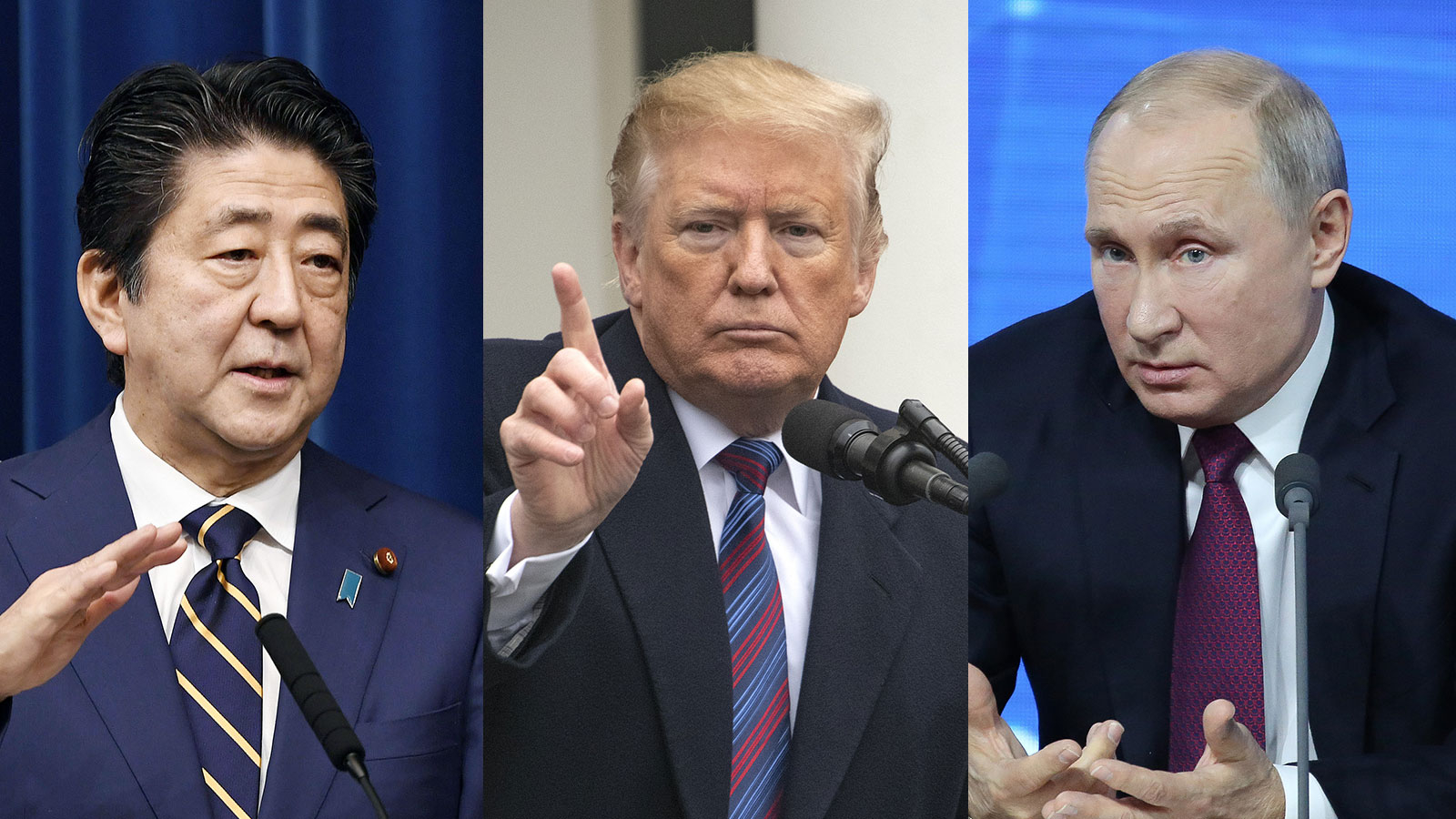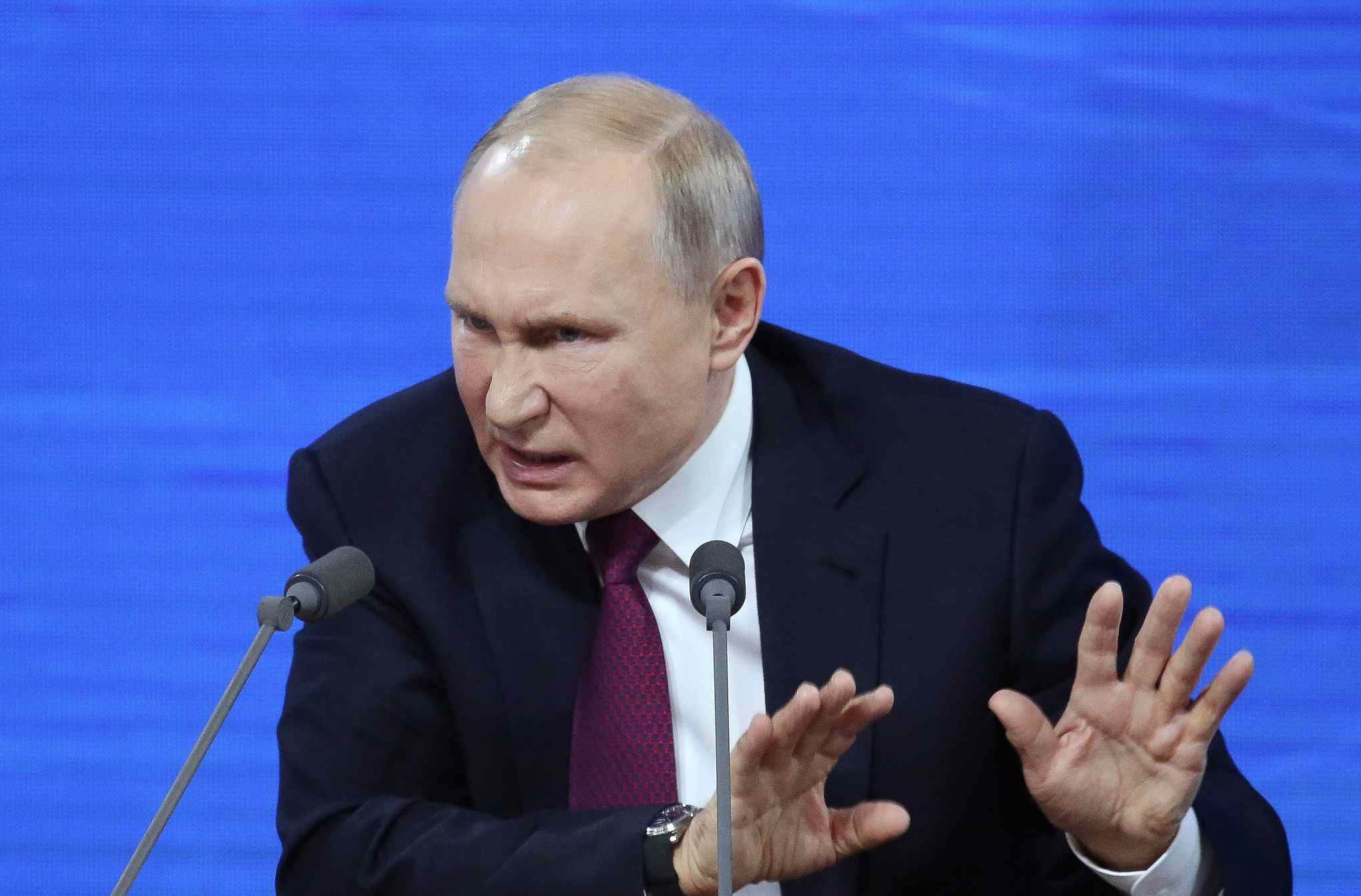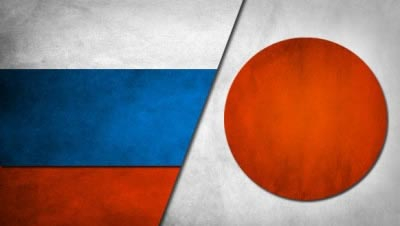
Politics
14:33, 14-Jan-2019
Peace treaty with Russia – Japan's gift to U.S.?
Updated
14:22, 17-Jan-2019
By Wang Mengjie

Japanese Foreign Minister Taro Kono and his Russian counterpart Sergey Lavrov were due to meet on Monday in a bid to advance bilateral peace treaty negotiations and smooth the way for their leaders' summit later this month. Will it be a new chapter or just an old platitude?
Abe: Japan-Russia peace treaty 'advantage for U.S.'
Japanese Prime Minister Shinzo Abe, who is due to visit Russia, intends to push forward with discussions on their territorial dispute which has seen “absolutely no progress” for more than 70 years.
Russia and Japan have been in dispute for seven decades over ownership of a group of islands, called the Southern Kurils in Russia and the Northern Territories in Japan.
The Japan-U.S. Security Treaty is always the basis of international security guarantees for Japan. Does this mean that how Japan treats a possible deal with Russia, which Abe "does not want this to drag out into another generation," has a lot to do with U.S. support?
Read more:
Abe explained to the media on January 6 the importance of the Japan-U.S. security alliance, adding that the signing of a peace treaty between Japan and Russia will have a positive impact on the security of the Asia-Pacific region and will also be beneficial for Washington.
Similarly, Katsuyuki Kawai, a lawmaker for Abe's Liberal Democratic Party, signaled to the U.S.that “Japan will keep in step with the United States,” the Japan Times reported.
Jerry Martinez, commander of U.S. Forces Japan, told a recent press conference that his country has no plans to put U.S. troops on the islands "right now," casting a shadow on the Japan-Russia talks.
Russia: What has the U.S. to do with the treaty?
Noting that Japan wants American support on the dispute, Russian Foreign Ministry Spokeswoman Maria Zakharova said on Sunday that the U.S. role in the bilateral dialogue between Russia and Japan is not clear as the dialogue has never involved the Americans, TASS said.
"When it comes to the bilateral dialogue, it is proceeding in a due course. The United States has nothing to do with that and its role is unclear," the spokeswoman stressed.

Russian President Vladimir Putin gestures as he speaks during his annual news conference in Moscow, December 20, 2018. /VCG Photo
Russian President Vladimir Putin gestures as he speaks during his annual news conference in Moscow, December 20, 2018. /VCG Photo
Russian President Vladimir Putin said last month that the U.S. military presence in Japan was complicating the search for a formal peace treaty between Moscow and Tokyo.
The president, in his press conference in December, questioned the level of Japan's sovereignty as reclamation work to relocate a U.S. air base within the southern island prefecture of Okinawa continues despite local opposition.
Fingerpointing slows the coordination
Abe has a strong sense of urgency to break the deadlock as forging closer relations with Russia would give his country a new lever of influence in the Asia-Pacific region.
Read more:
For the Kremlin, deeper ties to America's richest ally would help alleviate Russia's isolation from the West, according to a Bloomberg analysis.
The road to peace treaty talks for Russia and Japan does seem difficult.
On January 9, Russia accused Japan of "distorting" the essence of the agreements between Abe and Putin on accelerating the negotiation process based on the 1956 accord and of "misleading" the general public in both countries.
01:25

“Such statements cannot be regarded as anything other than an attempt to artificially aggravate the atmosphere around the problem of the peace treaty, to impose one's own scenario for its resolution on the other side,” Russia's Foreign Ministry said.
In response to the Kremlin's disagreement, Japan's Chief Cabinet Secretary Yoshihide Suga said a day later that Tokyo had already conveyed its stance to Moscow, but declined to go into details.
A lawmaker from the pro-Kremlin Liberal Democratic Party also put forward a bill to prevent parliament ratifying any deal giving Japan jurisdiction over the islands.
Another major challenge for Japan is to address Russia's concern about the possibility of a future U.S. military presence on the islands, newspaper Japan Today reported, citing experts.
"There remain too many obstacles," said James Brown, an expert in Japan-Russia relations at Temple University's Japan campus, adding his doubts about whether Russia would really want a deal because of the lack of advantages that it gets.
(With inputs from agencies)

SITEMAP
Copyright © 2018 CGTN. Beijing ICP prepared NO.16065310-3
Copyright © 2018 CGTN. Beijing ICP prepared NO.16065310-3